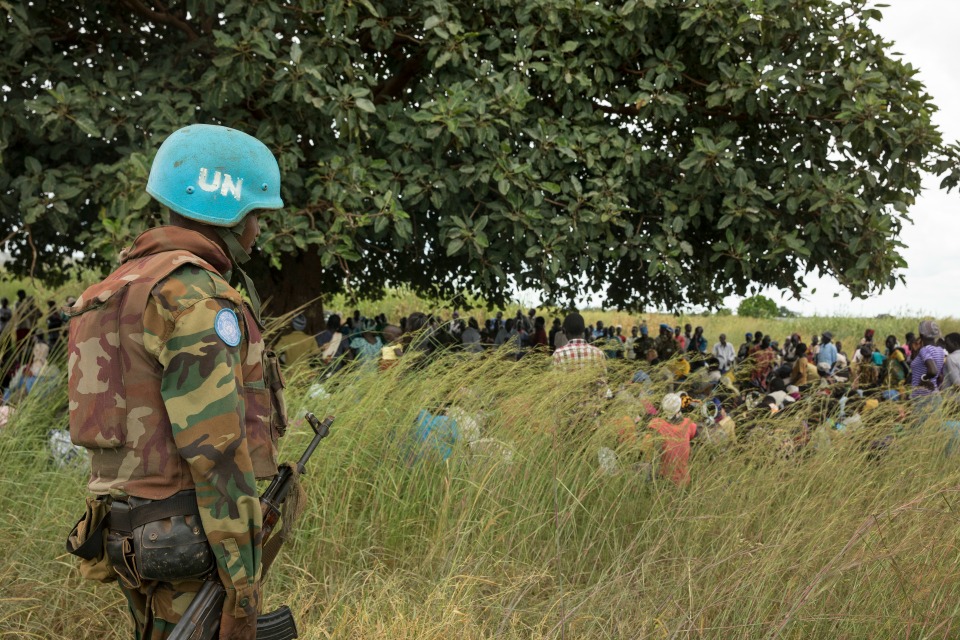"South Sudan is deteriorating before our very eyes."
Statement by Ambassador Matthew Rycroft, UK Permanent Representative to the United Nations, on South Sudan

Thank you Mr. President and thank you to the briefers. I would like to begin by paying particular tribute to Special Representative Ellen Løj for leading the UN Mission in South Sudan through an extremely difficult period.
As all three briefers have made so painfully clear, South Sudan is deteriorating before our very eyes. Ethnic tensions have reached breaking point; the humanitarian situation now rivals the worst on the African continent; and the political talks that could have brought peace to millions now appear to be further from success than at any point in the country’s brief history.
We just cannot stay silent in the face such tragedy. Here are the three things that we need to do to help the people of South Sudan.
First and foremost, we need to recognise that this is no ordinary civil war. Adama Dieng just said, ‘Genocides do not happen overnight. The warning signs are there’. That should play over and over in our minds. He is telling us to open our eyes; he is telling us to act before it is too late. If we fail to do so, the consequences will be unspeakable. Just think, if that horrific process, if that tragedy, were to become a reality, how could we sit around this table and ask– ‘what could we have done?’ Instead, today, we need to choose to take a different path.
Which brings me to my second point. On the eve of South Sudan’s independence, we adopted unanimously a resolution that authorised the creation of UNMISS. Since that day, South Sudan has landed on this Council’s agenda 70 times. 70 times. And on how many of those occasions has this Council spoken with one voice? Is it not time for us to unite to give the people of South Sudan hope?
I know the United Kingdom is willing to do so. I know that the UK can, must, play a greater, even more significant part in that effort as a member of the Troika and as a bilateral partner. But this effort extends beyond any single government, in fact beyond the confines of this chamber. We need a truly global effort. One that includes the members of IGAD, the African Union, the UN and especially requires the political will, the political courage, of South Sudan’s leaders. They must admit to the scale of the problem and commit to being a part of an inclusive and peaceful political solution.
My third point is that we already know the steps that need to be taken, an immediate end to the fighting, an immediate end to obstructions on UNMISS, the Regional Protection force and humanitarians, an immediate end to hate speech and incitement, and a re-doubling of collective political effort behind an inclusive political conversation.
The situation in South Sudan described today is dark. It is grim. But make no mistake, as Ellen said, it can get darker. And for this reason, we need to listen to Adama and use the tools that we have to prevent that from happening. I agree with all of Adama’s proposals and that includes his point that it is urgent for the Security Council to impose an arms embargo. The United Kingdom has consistently called for this, and we support the United States’ proposal. We cannot stand idly by while the people of South Sudan have weapons used against them by their fellow citizens.
There is no reason, given these conditions, to allow the continued flow of weapons to those who could eventually turn them on civilians.
Let me tackle concerns about an arms embargo head on. First, an arms embargo is no longer a matter of political leverage. We have other tools. Cooperation around a political process, and stopping the flow of arms are not mutually exclusive.
Second, we know that an arms embargo can be implemented because of the limited infrastructure in South Sudan – only one main tarmac road and only four main airports.
Third, we know that with an embargo operation of heavy weaponry will be limited and the flow of ammunition will reduce. So we know that an embargo will have an impact in the short, medium and long term. We know all of the answers to all of those questions and we know that stopping these weapons will be a step in the right direction in this matter of life and death.
Mr President, no matter how dark the situation is in South Sudan, as I said it can get worse, but it can also get better, provided we take action. So let us act collectively, and with authority, wisely using the tools at our disposal to get where we are all aiming, namely sustainable peace and freedom from fear for the people of South Sudan.
Thank you.